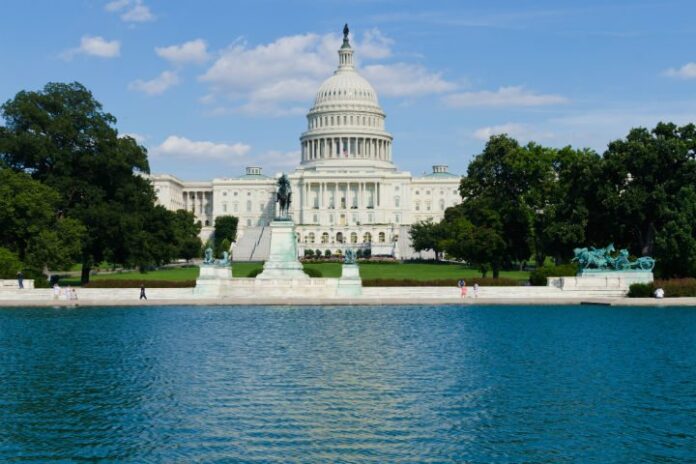WASHINGTON – The nation’s capital was abuzz following news that the GOP-led Congress and White House had reached a wide-ranging budget compromise that will set federal spending levels for the rest of the Obama administration and into 2017. Among the items included in the omnibus bill is the Spectrum Pipeline Act, which if enacted would mandate the Federal Communications Commission and other federal agencies to open up unused government spectrum for private use.
The bill specifically directs the secretary of commerce to submit a report to the president and the FCC identifying 30 megahertz worth of spectrum that is being used by the federal government or shared between federal and nonfederal entities, as well as at least 10 megahertz of contiguous frequencies that can be reallocated. The president is then directed to withdraw or modify the licenses of federal spectrum holders, after which the FCC will designate it for nonfederal or shared use. The auction would have to begin by July 1, 2024, with 110% of the costs required to be covered by the proceeds.
Reaction from the wireless lobby was strong, with Telecommunications Industry Association CEO Scott Belcher noting “The inclusion of the Spectrum Pipeline Act in the bipartisan budget agreement is a noteworthy step toward making more bands of spectrum available for mobile applications. We appreciate that the agreement provides funds to allow federal agencies to plan for future transitions and/or spectrum sharing.”
CTIA President and CEO Meredith Attwell Baker said “The Spectrum Pipeline Act is an important first step forward in meeting the wireless industry’s long-term need for additional spectrum by directing the auction of 30 megahertz of spectrum below 3 GHz and requiring the FCC and [National Telecommunications and Information Administration] to identify an additional 100 megahertz of spectrum that can be made available for commercial use. In addition, important process and research reforms were included that will improve federal spectrum management. We appreciate the efforts of the House Energy and Commerce Committee, the Senate Commerce Committee and the administration to achieve these objectives.”
If passed, the bill would come on the heels of an already sizable push by the FCC to open up more high-band spectrum, and it would address a concern that the FCC is lacking a road map to reallocate federally used spectrum. It remains to be seen if the bill will become law, but it is one of the least controversial items in a highly controversial, but bipartisan, bill.
Photo copyright: kzlobastov / 123RF Stock Photo

